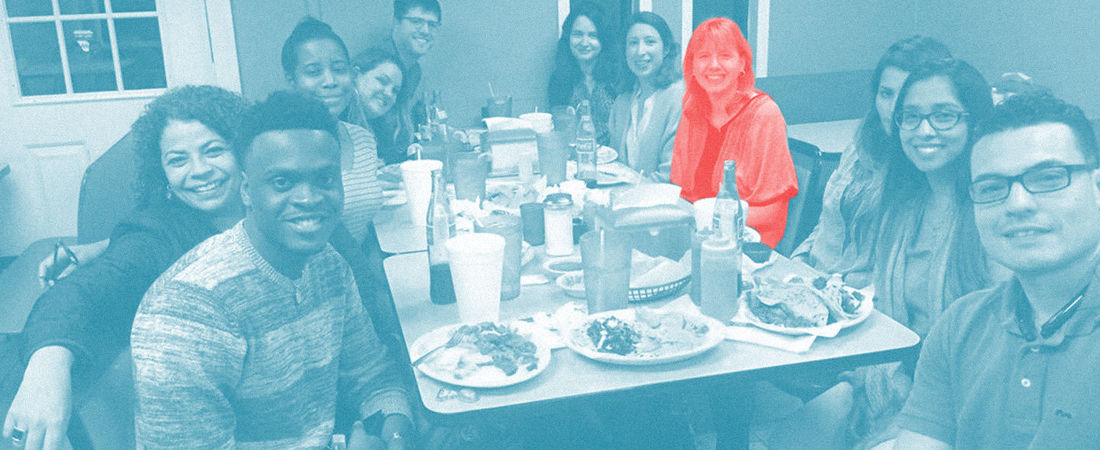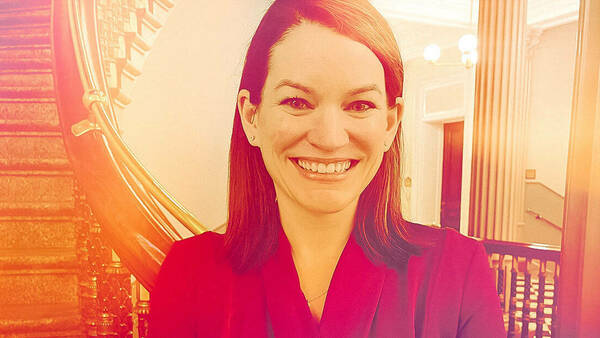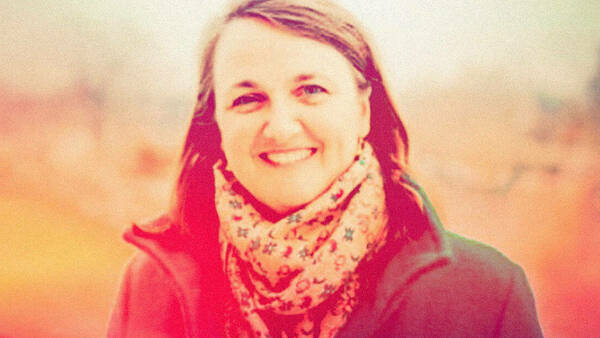The clients Kristina Campbell ’97 SMC, ’02 J.D. serves in her Washington, D.C. legal clinic arrive suffering and seeking help.
They’ve endured gang violence and domestic abuse in their home countries. They’ve weathered a long journey from Central America. They’ve been detained and then released into a country whose language they don’t speak.
And they come seeking asylum, and with it, the promise of a fresh start in a safe place—something for which Campbell is happy to help them fight.
“You’re supposed to use your power and privilege in a way that matters, to be a voice for the voiceless, and I can’t think of any other better way to do it,” says Campbell, who is a professor and the co-director of the Immigration and Human Rights Clinic at the University of the District of Columbia’s David A. Clarke School of Law. “These clients are disenfranchised in every way possible. They’re not citizens, they can’t vote, they don’t speak English so they can’t really navigate the system, and they need help.”
Campbell makes sure her clients receive the help they need. Since founding the clinic several years ago, she has not only taught immigration law, but also enlisted students to help with the cases of immigrants who are hoping to build a better life in the United States.
“In 2013 and 2014 in the D.C. area we started seeing a lot of unaccompanied children and minors and then whole families—mothers and their kids—fleeing gang violence, fleeing domestic violence,” Campbell recalls. “So we started taking those cases. Those women and kids had been detained. Most of them are from Central America. So they come to the border, indicate their intent to seek asylum, and are immediately put in these family detention centers in south Texas or Pennsylvania. So there was just a huge need.”
Once these immigrants have been released from detention, they need to find a lawyer for their initial court appearance, and they need help filing the paperwork required to work legally in the United States until their case is decided.
“They’re all incredibly strong, resilient people,” Campbell says. “They literally walked across a continent to save the lives of themselves and their children. By the time they get here, they have been through unimaginable things. And that doesn’t even count what happened to them in their home country—what caused them to flee in the first place. Most of our clients, because of what they’ve been through, have post-traumatic stress disorder and all other manner of trauma, but they find jobs, their kids enroll in school and learn English very fast, they’re active participants in their cases, and they’re very, very grateful.”
Campbell, her co-director, and their law students handle approximately 25 active cases at a time. Referrals come from Catholic Charities and other nonprofits. The work requires them to conduct in-depth interviews that can help establish a legal basis for asylum.
“It does get very sad sometimes, just because you’re seeing human suffering up close and in so much detail,” Campbell says. “We have to ask them to relive the most horrible things that have ever happened to them because that’s what you have to do to get asylum—it’s your burden to prove that you would be persecuted if you returned to your country, so we have to be extremely specific.”
The work is a natural fit for Campbell, who has long had an interest in promoting social justice and serving immigrant communities. As a student at Saint Mary’s College, she was shaped by a spring break immersion trip focused on helping migrant farmworkers. After graduation, she joined Holy Cross Associates for a stint working at a homeless shelter and attended a home parish that served a predominantly Latino community. Following law school, she learned Spanish and took jobs that allowed her to represent farmworkers in Virginia and Arizona and handle immigrant rights cases in Arizona and California.
Campbell enjoys the opportunity to both help families in need and teach new generations of lawyers, and she sees her work as a way to promote healing.
“I really can’t see myself doing anything else,” she says. “For the type of law we do, we’re problem-solvers. And I think it does healing in a couple kinds of ways. It heals my soul, I hope that it helps heal our clients in some way, and I hope in a global context that it helps to heal the world and make the world a better place.”
To learn more about the work the Immigration and Human Rights Clinic does to help families who are fleeing violence, please visit its website.



